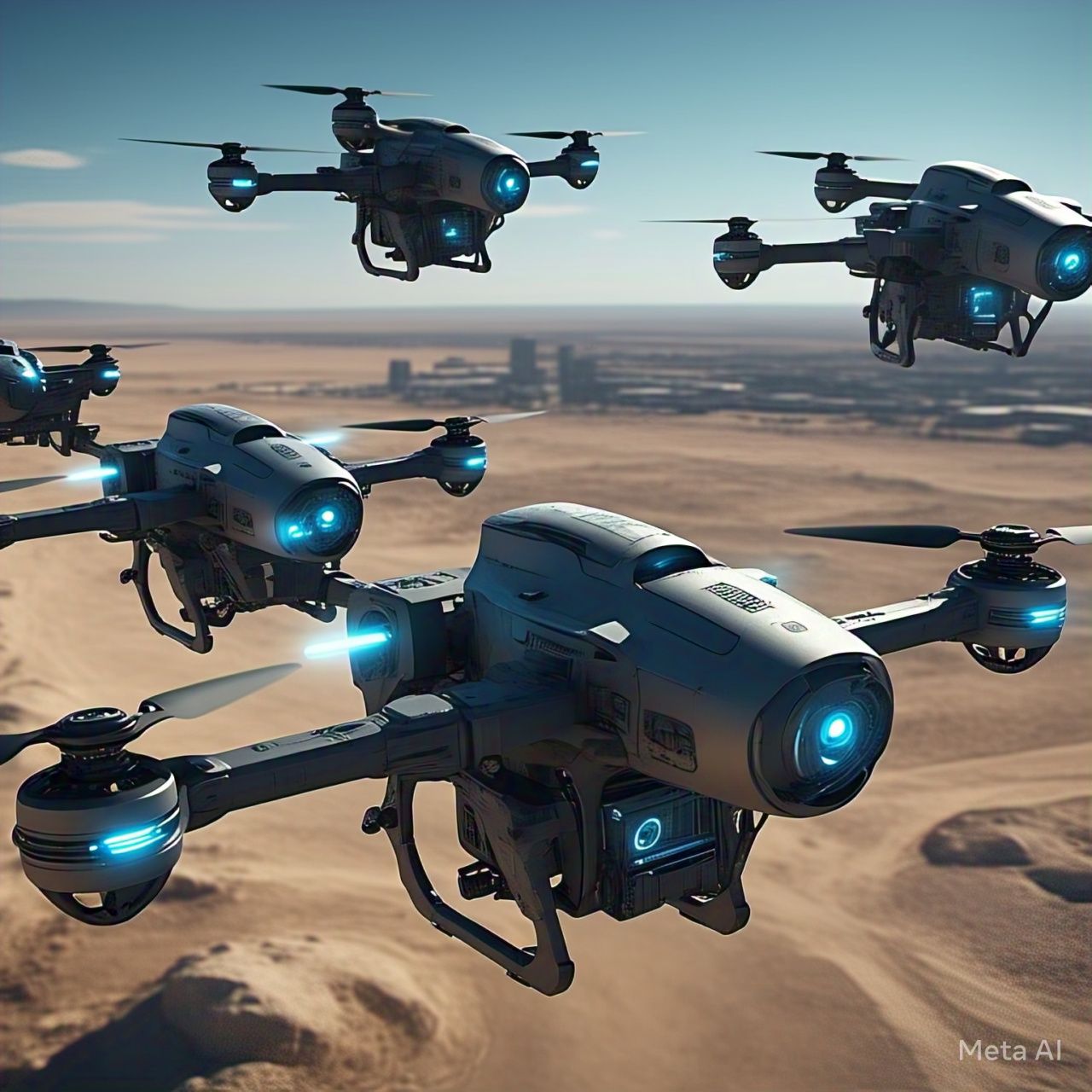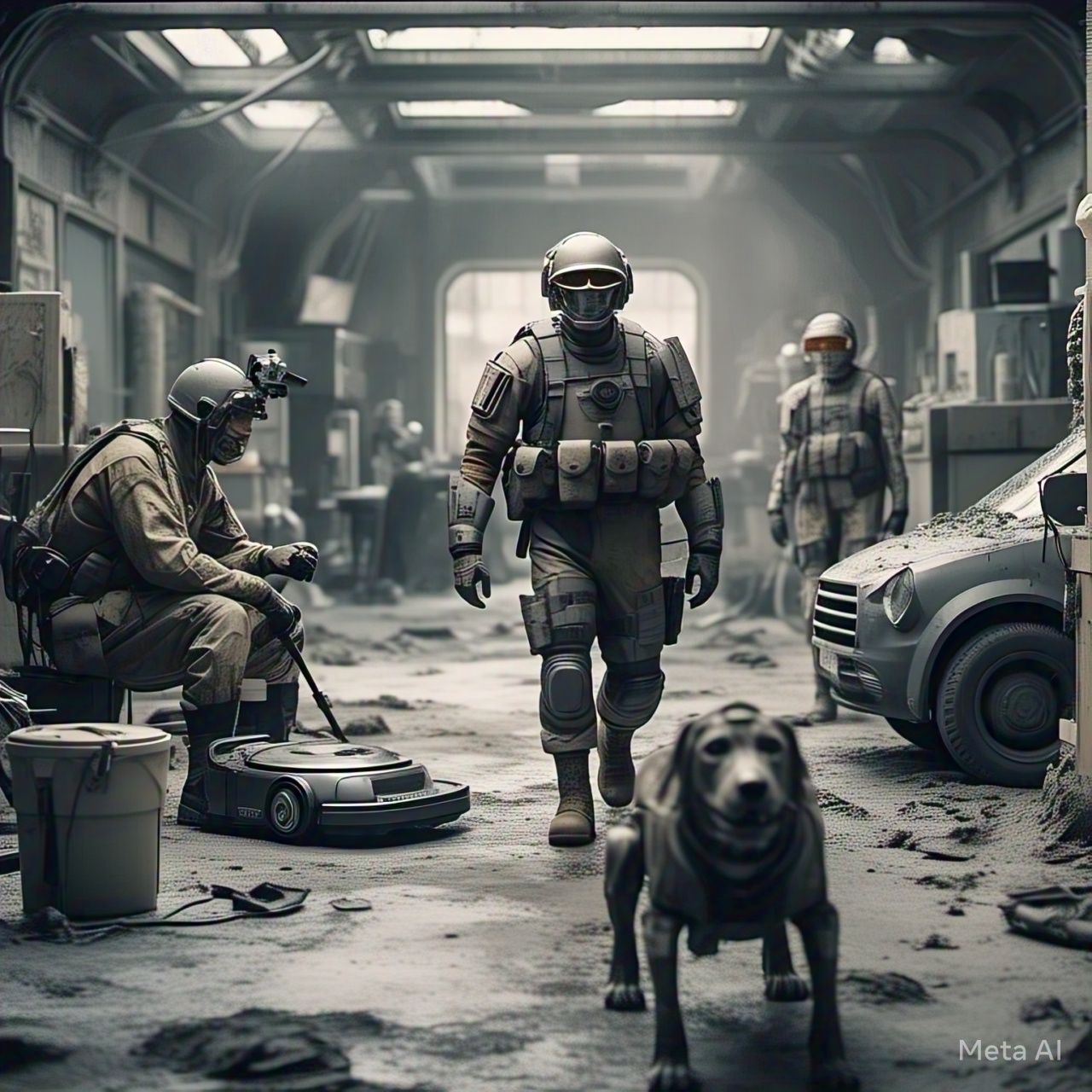Table of Contents
- Introduction
- Understanding AI-Powered Drones
- Applications of AI in Reconnaissance Missions
- Technological Advancements in AI-Powered Drones
- Benefits of AI-Powered Reconnaissance Drones
- Challenges and Ethical Concerns
- Future of AI-Powered Drones in Reconnaissance
- Conclusion
- FAQs
Introduction
In modern warfare and intelligence operations, reconnaissance plays a crucial role in ensuring national security. AI-powered drones have emerged as game-changers in this domain, enhancing surveillance, intelligence gathering, and operational efficiency. These advanced drones integrate artificial intelligence (AI) to process vast amounts of data in real-time, making them indispensable for military, law enforcement, and search-and-rescue missions.
Understanding AI-Powered Drones
AI-powered drones are unmanned aerial vehicles (UAVs) that utilize artificial intelligence to navigate, analyze, and execute reconnaissance missions with minimal human intervention. These drones are equipped with machine learning algorithms, computer vision, and autonomous decision-making capabilities, making them more efficient than traditional drones.
| Feature | AI-Powered Drones | Traditional Drones |
|---|---|---|
| Autonomy | High | Low |
| Real-time Processing | Yes | Limited |
| Data Analysis | AI-based | Manual |
| Operational Efficiency | High | Moderate |
| Human Intervention | Minimal | High |
Applications of AI in Reconnaissance Missions
AI-powered drones are utilized in various reconnaissance missions, including:
1. Military Surveillance
AI drones assist in monitoring enemy movements, border patrol, and intelligence gathering, ensuring enhanced situational awareness for defense forces.
2. Search and Rescue Operations
These drones locate missing individuals in disaster-hit or remote areas using AI-driven object detection and infrared sensors.
3. Law Enforcement and Security
Police forces deploy AI drones for crime prevention, crowd monitoring, and identifying threats in real-time.
4. Environmental Monitoring
AI-powered drones monitor deforestation, wildlife movements, and climate changes, helping conservation efforts worldwide.
5. Industrial and Infrastructure Inspections
Industries use drones to inspect pipelines, bridges, and power lines, reducing human risk and increasing efficiency.
Technological Advancements in AI-Powered Drones
Several technological innovations have propelled the efficiency of AI-powered reconnaissance drones:
1. Machine Learning and Deep Learning
Drones equipped with deep learning algorithms can recognize patterns, analyze data, and improve accuracy in surveillance tasks.
2. Computer Vision
With advanced computer vision, AI drones can detect objects, read license plates, and identify targets autonomously.
3. Edge Computing
Real-time data processing capabilities enable drones to analyze information instantly without depending on cloud servers.
4. Swarm Intelligence
Multiple AI drones can operate collectively using swarm intelligence, optimizing search and reconnaissance operations.
5. Autonomous Navigation
Drones leverage GPS, LiDAR, and AI-assisted navigation to avoid obstacles and complete missions independently.
Benefits of AI-Powered Reconnaissance Drones
The integration of AI in reconnaissance drones offers several advantages:
- Enhanced Efficiency: AI reduces the time required for intelligence gathering and data analysis.
- Reduced Human Risk: These drones operate in high-risk zones, minimizing casualties among personnel.
- Improved Decision-Making: AI-powered analytics provide real-time insights, enabling better tactical decisions.
- Cost-Effectiveness: Autonomous drones reduce the need for large reconnaissance teams and associated costs.
- Scalability: AI-driven drone swarms can cover vast areas simultaneously.
Challenges and Ethical Concerns
Despite their advantages, AI-powered reconnaissance drones pose several challenges:
1. Privacy Issues
The use of drones for surveillance raises concerns about privacy infringement and data security.
2. Ethical Use of AI
The potential for misuse, including unauthorized spying and lethal autonomous operations, necessitates strict regulations.
3. Cybersecurity Threats
AI-powered drones are susceptible to hacking, which can compromise sensitive intelligence.
4. High Development Costs
Advanced AI drone systems require significant investment in research and infrastructure.
5. Legal and Regulatory Hurdles
Many countries are still formulating policies for the ethical use of AI in reconnaissance operations.
Future of AI-Powered Drones in Reconnaissance
The future of AI-powered drones is promising, with advancements expected in the following areas:
- Improved AI Algorithms: Future drones will feature enhanced learning capabilities for real-time adaptability.
- Better Energy Efficiency: Battery and energy-efficient designs will allow longer flight durations.
- Human-AI Collaboration: AI drones will work alongside human operators for more strategic reconnaissance.
- Integration with IoT: AI drones will be connected to IoT networks for seamless data sharing.
- Advanced Stealth Technology: Future AI-powered drones will be equipped with stealth features to avoid detection.
Conclusion
AI-powered drones are revolutionizing reconnaissance missions, providing unmatched intelligence-gathering capabilities. With continuous advancements in AI, machine learning, and autonomous navigation, these drones will play a pivotal role in military, security, and humanitarian operations. However, addressing ethical concerns and regulatory challenges remains crucial for their responsible use.
FAQs
1. What makes AI-powered drones better than traditional drones?
AI-powered drones offer enhanced autonomy, real-time data processing, and reduced human intervention, making them superior for reconnaissance missions.
2. Are AI-powered drones used in civilian applications?
Yes, they are widely used in law enforcement, search and rescue, environmental monitoring, and industrial inspections.
3. What are the main challenges facing AI-powered reconnaissance drones?
Challenges include privacy concerns, ethical issues, cybersecurity threats, and high development costs.
4. Can AI-powered drones operate without human control?
Yes, they can perform autonomous operations, but human oversight is often required for critical missions.
5. What is the future of AI-powered drones?
Future advancements will focus on improved AI algorithms, better energy efficiency, IoT integration, and enhanced stealth capabilities.





